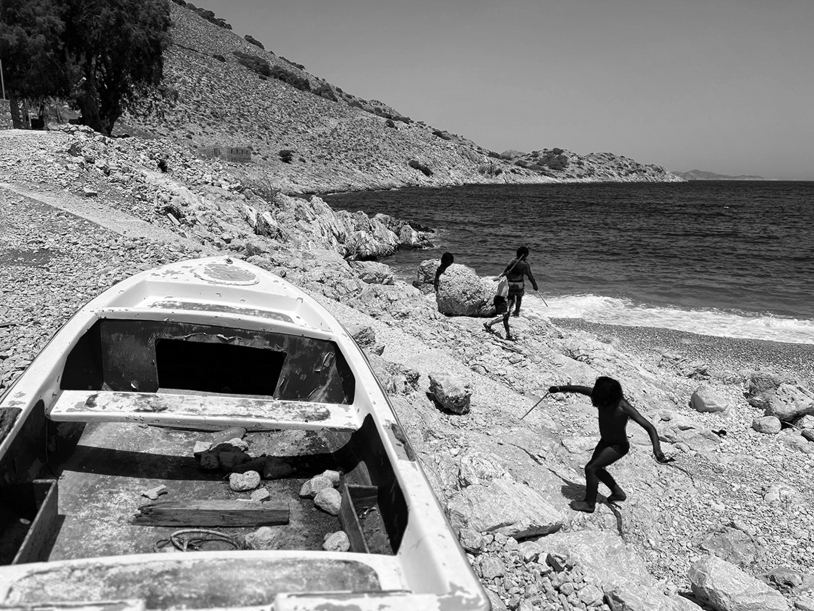
How do the kids of our times play when they are free and unsupervised. Without the guidance of adults, without the educational efforts adults often try to associate to playing.
They are kids before adolescence and the storms that will change the way they play. They are kids of our times, brought up by confused adults, amidst overpowering technology and apocalyptic visions. Yet, they need no phones or tablets. A stick, a ball, the sea, each other. It's more than enough. It sparks wild games, that look aggressive but aren't. Its more a flame that longs for the world, its lights, its shadows.
''If I Were Fire'' is an ongoing project on how the kids of our times play when they are away from screens and from supervising adults.
How do they choose to play when they are free and unaccompained. When they are among themselves. Without the guidance of adults, without the educational efforts adults often try to associate to playing.
They are kids before adolescence, before the crucial storm of changes that will shortly come into their lives and change - among other things - also their games.
They are kids of our times. They are growing up around confused adults, overpowering technology and apocalyptic visions of the future. As opposed to my generation (born in the 1970s), it is reasonable to think that they will have it interesting but not easy when they grow up. One would think they would need a phone, a screen to play. But I saw the opposite. Some sticks, a ball, the infinite, blue sea and a rocky beach are more than enough for them. Here, they play to repel a pirates' invasion on a deserted beach, they play a gun battle on the city roofs, a fierce soccer game at sunset...they play sea explorer by conquering their fear on the sea. Their games may seem aggressive. But - from what I saw - that would not be right to say. I saw them doing it and I saw them with each other in their life after play. I saw there was no aggression and violence. It was more a longing for adventure, myth, legend. It was more like the play of lion cubs or puppies of dogs. If it was ''aggressive'' it was more in the Greek meaning of the word: ''to go towards'', not ''to go against''. A quality considered by the Greeks as needed to some degree by all living things to venture into the world.
The working title of the project is taken from a Medioeval poem by Cecco Angiolieri: If I were fire, I would burn the world. This line, apparently destructuve, born in Dark Ages (weirdly times not as different from ours as one would think ), always made me think of a spark of vitality, of a great aspiration to embrace life and the world, wildly. It's lights and it shadows.
Why submit it to the Zeke Award for Systemic Change? I thought about it because the project is not - apparently - an obvious candidate. But actually I think systeemic change is one of the strongest underlying currents behind the wild flow of the pictures. These kids - an often neglected age, just before sexual development - are extraordinary creatures. They are little men and women, totally focused in understanding the world, starving for meaning. And they are very able to understand everything, including the complexities and paradoxes of life. In truth, they are advancing fast to be the future of this planet and they soon will become its present. In this sense, nothing more than them is the terrain of systemic changes - whatever they will be. And what they will be will depend on how much meaning we'll be able to pass on. If we fail to understand them or exaggerate in trying to shape them or cage them into our ideas of what they should be - as I feel it often happens - then they will take their own directions wildly. Like plants do when we fail to cultivate them.
Make Comment/View Comments